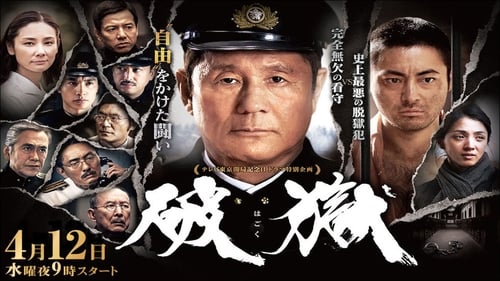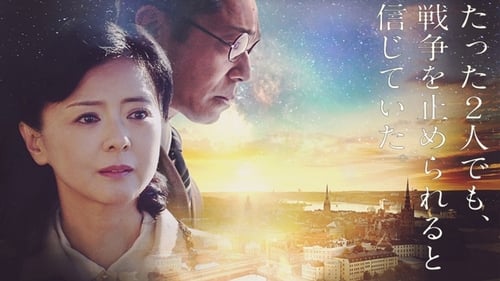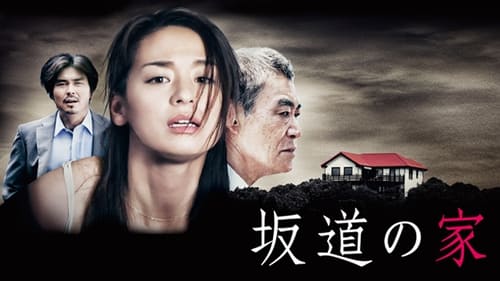
Teleplay
One late night in June 1942, Sakuma Seitaro dangles from the frame of a skylight in an isolation cell in Akita Prison. He forces open the glass window and breaks out of jail. This crime even reaches the ears of Urata Susumu, the chief warden of Kosuge Prison in Tokyo. Urata had been in charge of those sentenced to life in the prison until last year. Although Sakuma is a dangerous person who had also broken out of jail in Aomori, he submits to Urata who is the only person who had treated him kindly in the past. However, three months after escaping from jail, Sakuma shows up at Urata’s house. He has come to complain about the inhumane Akita prison officers. But he is locked up again after Urata notifies the police during an unguarded moment. A year later, Sakuma is sent to Abashiri Prison and Urata is also ordered to transfer as the prison’s chief warden.

Writer
Onodera Yuriko sets off for Sweden where her husband, Major General Onodera Makoto, is stationed as a military attache in Stockholm during World War II. Called the "god of intelligence", Makoto is an intelligence officer of the Russian service of the Japanese Army General Staff. Fluent in Russian and German and trusted by the spies of many countries because of his integrity, his office would eventually become the most important Japanese intelligence post in Europe. From the day of her arrival in Stockholm, Yuriko helps her husband's intelligence activities. She encrypts the highly classified information obtained by Makoto and sends it in coded telegrams to the General Staff Headquarters in Japan every day. Husband and wife have jointly undertaken this intelligence work for confidentiality.

Screenplay
Matsunaga Yasuzaemon was a man called “Electricity Monster”. The post-war recovery and high economic growth serve as the basis for him to achieve the breakup and privatisation of the electricity business. As a follower of Fukuzawa Yukichi, he inherited the spirit of independence, self-respect and the people. He rose up alone from the ruins of the war. It was the fight of an unconventional, stubborn old man over 70 with an indomitable will. Minister of Trade and Industry Ikeda Hayato admired Matsunaga like a father while Prime Ministers Yoshida Shigeru and Konoe Fumimaro, Shirasu Jiro (Takagawa Yuya) and others were in awe of his unfathomable passion.

Screenplay
Rieko Sugita, a young and beautiful hairdresser who happens to visit a bedding shop owned by Yoshitaro (Emoto) and the latter becomes so besotted with her that they begin an affair without his wife's knowledge. On the other hand, Rieko hates her late mother (Fueki Yuko) for sleeping around with other men but is actually following in her footsteps by sleeping with men for money. One day, she reunites with her first love Naoki (Ozawa) who has become an assistant professor and shares a dark secret with her. Soon, the romance between them is rekindled. However, Yoshitaro who has lost his fortune and is about to lose Rieko, becomes consumed by jealousy which brings Rieko, Naoki and him to the point of no return. -- Dorama World

Screenplay
A story about a woman from Yanaka Village, Tochigi Prefecture, which was abolished by the government due to the Ashio Copper Mine pollution incident in the late Meiji Period. The drama depicts the struggle of the woman who gradually matures as a person through her encounters with versatile figures, including socialists and writers, after moving to Tokyo.

Scenario Writer
The story is about the emotional and spiritual exchange between an elderly watchmaker and a cheerful and kind young woman who lost her mother in the tsunami of the Great Tohoku Earthquake. The woman asks the watchmaker to repair a wristwatch, which is a precious memento left her by late mother.

Screenplay
The drama stars Beat Takeshi as General Hideki Tojo, who served as Prime Minister of Japan during World War II and was later executed as a war criminal. The story's theme is said to be a look at how the Pacific War began, focusing mostly on the three month period between the Imperial Conference (Gozen Kaigi) on September 6, 1941, and the attack on Pearl Harbor on December 7, 1941.

Screenplay

Writer

Director

Writer
Tatsuo was leading a peaceful suburban life with his wife and daughter. But an ex-girlfriend attends his bridge club. Then Haruo, an old friend, appears. He is being chased by loan sharks and needs shelter. Haruo overstays his welcome and family relations become strained.

Writer
Set on a quiet ranch in Hokkaido. One day, a colt is born from a legendary bloodline. It is given the name Oracion or "prayer". When Oracion is grown, a factory owner buys the horse. Will he be the key to solving the man's problems? Based on the novel by Teru Miyamoto.

Screenplay
Arrested and interrogated by the police for a murder, Kiyoshi Ôkubo remembers his past and ends up confessing to several murders. Inspired by the true story of the serial killer who raped and killed eight women in Japan in 1971. The case moved the whole country.

Screenplay
Com base em registros políciais e no premiado livro escrito por Ryuzo Saki, este filme relata a terrível onda de crimes de Iwao Enokizu, um homem vazio sem "kokoro", que significa em japonês, tanto "eu" como "coração". O funcionário insatisfeito, Enokizu mata várias pessos, sem qualquer razão e consegue escapar da polícia, mesmo com seu rosto celebrizado em todo país. Mas, seu pai e sua esposa, que sabem do seu segredo, tentam viver tranquilos. Depois de realizar vários documentários, insatisfeito com as limitações da forma narrativa, Shohei Imamura criou este filme. Aparentemente, um drama policial simples, Minha Vingança incorpora vários toques surrealistas, incluindo um final em que a "lei da gravidade" é esquecida.










